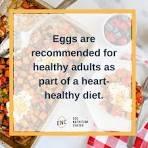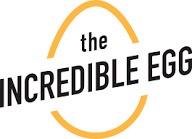 In a recent article entitled, Hot Topics in Primary Care, issued as a special supplement to the Journal of Family Practice, Dr. Maria Luez Fernandez reviewed cardiovascular health, cholesterol intake and the effect of egg consumption. The review featured in the AEB Egg Enthusiasts confirms the generally accepted principal that elevated LDL-cholesterol levels increase the risk for cardiovascular disease but the relationship with dietary cholesterol intake is now questioned. The American College of Cardiology has concluded that there is “insufficient evidence to determine whether lowering dietary cholesterol reduces LDL-cholesterol.” Accordingly, the 2015 Dietary Guidelines for Americans deleted the 300 mg. per day dietary cholesterol restriction. The Dietary Guidelines for Americans and recommendations by the American Heart Association accept that consumption of two eggs per day by healthy consumers is acceptable. The review authored by Dr. Fernandez confirms that consuming eggs does not influence serum cholesterol level.
In a recent article entitled, Hot Topics in Primary Care, issued as a special supplement to the Journal of Family Practice, Dr. Maria Luez Fernandez reviewed cardiovascular health, cholesterol intake and the effect of egg consumption. The review featured in the AEB Egg Enthusiasts confirms the generally accepted principal that elevated LDL-cholesterol levels increase the risk for cardiovascular disease but the relationship with dietary cholesterol intake is now questioned. The American College of Cardiology has concluded that there is “insufficient evidence to determine whether lowering dietary cholesterol reduces LDL-cholesterol.” Accordingly, the 2015 Dietary Guidelines for Americans deleted the 300 mg. per day dietary cholesterol restriction. The Dietary Guidelines for Americans and recommendations by the American Heart Association accept that consumption of two eggs per day by healthy consumers is acceptable. The review authored by Dr. Fernandez confirms that consuming eggs does not influence serum cholesterol level.

Increased levels of dietary cholesterol do not alter the ratio of LDL to HDL and deleterious lipoproteins are preferentially removed by the liver, decreasing the risk of endothelial changes.
Dr. Fernandez notes that egg consumption is associated with elevated HDL-cholesterol and that eggs are an excellent of choline and that carotenoids, including lutein in the yolk, contribute to the integrity of the retina, reducing the risk of age-related macular degeneration.
The literature review conducted by Dr. Fernandez not only refutes the outmoded concept that eggs are deleterious, but reinforces the realization that they are beneficial to health.